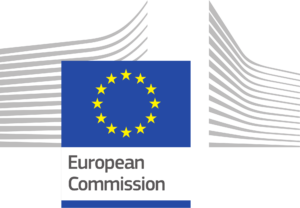European Commission Pulls Plug on Online Gambling Infringement Cases
In what is expected to be a significant blow to many dozens of Europe-based online gambling operators and books, the European Commission announced on Thursday that it is dropping all enforcement proceedings against EU member countries, effective immediately.
 The move abruptly ends all existing actions against EU member states who have erected barriers to free-market , such as a high-profile case involving Germany and its licensing plans governing online operators. The EC’s back-pedaling means that operators who are impacted or negatively affected by the protectionary practices desired by several EU member states now will have to battle in the court systems of those nations, which will always be an uphill task.
The move abruptly ends all existing actions against EU member states who have erected barriers to free-market , such as a high-profile case involving Germany and its licensing plans governing online operators. The EC’s back-pedaling means that operators who are impacted or negatively affected by the protectionary practices desired by several EU member states now will have to battle in the court systems of those nations, which will always be an uphill task.
Here’s the meat of a statement issued by the European Commission on Thursday:
In line with its political commitment to be more strategic in enforcing EU law, the European Commission has today decided to close its infringement procedures and the treatment of complaints in the area of gambling.
From the start, the Juncker Commission has been focusing on its political priorities and pursuing them vigorously. This political approach is also reflected in the Commission’s handling of infringement cases. The Communication “EU law: Better results through better application” sets out the Commission’s approach to prioritising cases in a strategic manner, carefully weighing the various public and private interests involved.
In this vein, the Commission has today decided to close its infringement procedures in the area of online gambling and the treatment of relevant complaints against a number of Member States.
The Court of Justice of the European Union has repeatedly recognised Member States’ rights to restrict gambling services where necessary to protect public interest objectives such as the protection of minors, the fight against gambling addiction and the combat of irregularities and fraud. The Commission acknowledges the broader political legitimacy of the public interest objectives that Member States are pursuing when regulating gambling services. The Commission also notes Member States’ efforts to modernise their online gambling legal frameworks, channel citizens’ demand for gambling from unregulated offer to authorised and supervised websites, and ensure that operators pay taxes. With that in mind, it is not a priority for the Commission to use its infringement powers to promote an EU Single Market in the area of online gambling services. [Emphasis ours.]
The Commission will continue to support Member States in their efforts to modernise their national online gambling legal frameworks and to facilitate cooperation between national gambling regulators.
The emphasized line, buried near the bottom of the statement, reveals the truth of the matter. The European Commission is dropping its pursuit of online-gambling enforcement actions as a matter of expediency, not because the violating nations aren’t violating EU trade pacts. Those nations still are violating said pacts, which means that the EC has admitted that it’s a toothless force on at least one cutting-edge issue. That’s unfortunately been the historical norm for most such international forces: Despite the billions spent on pomp and circumstance, it means nothing, and the international group inevitably folds like a cheap circus tent in a strong wind.
The pullback obviously and inevitably weakens the EU and its legal apparatus as a whole, and the announcement was met with measured outrage from at least two industry lobbying groups representing online operators’ interests. Maarten Haijer, the Secretary General of the European Gaming and Betting Association (EGBA), stated this:
“Today’s decision by the Commission is unhelpful in the fight against unregulated non-EU gambling services. National courts will continue to be confronted with gambling cases and the CJEU will continue to rule on questions from national courts. This decision sends a signal that the Juncker Commission fails to appreciate the need to underpin its ambitious Digital Single Market programme with solid enforcement and guidance from the Commission itself, taking its role as guardian of the treaties seriously. The question is not whether the Commission should create an internal market for online gambling or not, but the idea that regulatory and EU law challenges of an internet sector like online gambling can be resolved by member states individually, shows a baffling lack of understanding of the digital consumer by the Juncker Commission.”
Over at the Remote Gambling Association (RGA), CEO Clive Hawkswood offered this:
“The existence of infringement proceedings and the Commission’s subsequent pressure on Member States to comply with EU law has helped with the introduction of many effective and sensible regulatory regimes for online gambling across Europe. However, many other cases have been left to languish for several years and many unlawful restrictions to the free provisions of services have yet to be addressed. In those circumstances we are of course dismayed that, with regard to the Internal Market, the Commission has effectively abandoned our sector and given a free pass to non-compliant regimes. However, we will continue to work with Member States with the aim of establishing EU-compliant regimes that would benefit European consumers, the online gambling industry, and national governments.”
Long-term effects of the European Commission effectively ending market protection for the online-gambling sector include the likely increase of protectionary licensing regimes and laws favoring state-run gambling offerings such as lotteries. Operators are likely to face increased licensing fees as well, due to the need to be licensed in every jurisdiction rather than just once somewhere within the EU.
This in turn might have a negative impact on a select few tax havens scattered within the EU, just as it is likely to favor the largest operators and spur further market consolidation.





